How to grow holly – tips for growing, planting, and maintaining the classic Christmas shrub
Discover how to grow holly from seed and two different types of cuttings

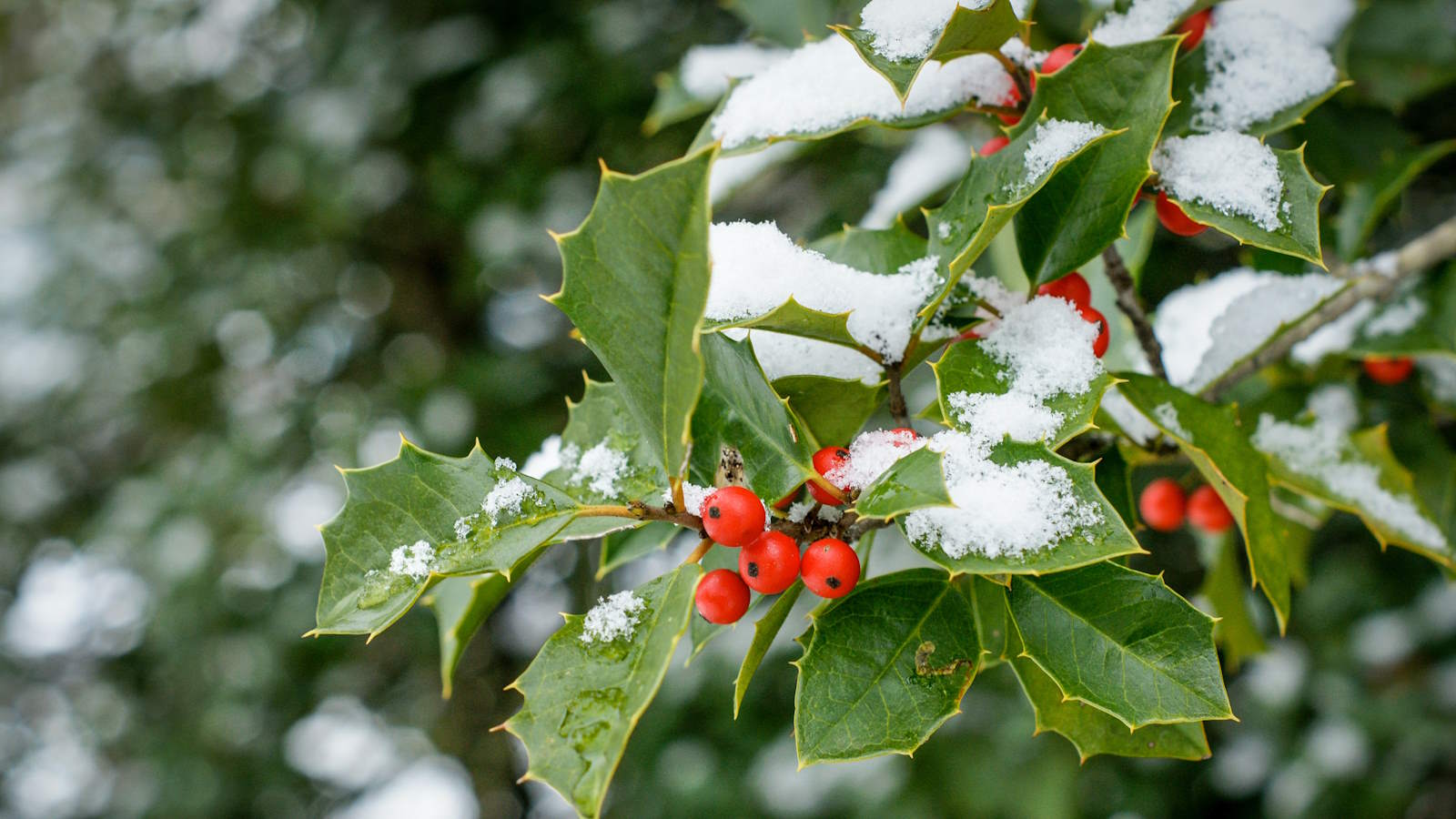
Hollies are really low maintenance and beautifully structural plants. They are mostly evergreen and can be grown as either trees or shrubs, boasting distinctive ornamental leaves year-round, white flowers in summer, and then red berries in fall and winter that are forever linked with Christmas.
There are hundreds of different types of holly globally and most are either male or female, so you will need one of each to ensure that flowers are pollinated and you get the red berries that hollies are loved for.
Hollies are very versatile and the pretty evergreen plants are used in a range of ways as part of backyard ideas, including as individual evergreen specimen shrubs or trees, topiary, or as a hedge for wildlife.

Holly berries are synonymous with the festive season
How to grow a holly bush
Holly bushes can be purchased from garden centers or online throughout the year. Alternatively, if you want to propagate your own holly, you can grow plants from cuttings or from seed.
See a range of holly bushes to choose from at Nature Hills
How to grow holly from seed
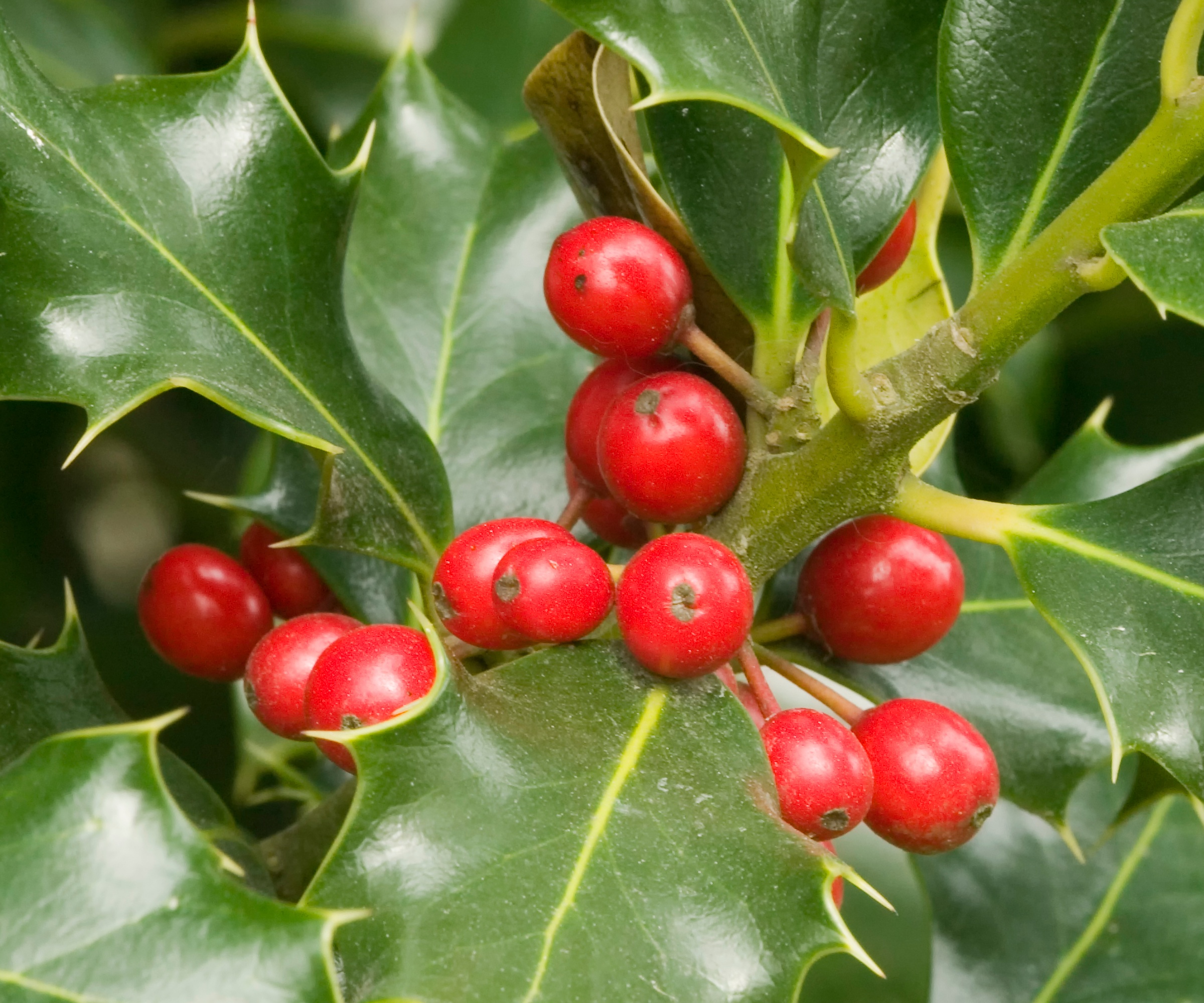
Holly seeds are removed from inside the red berries
Growing holly from seed requires patience. It can take several years for the seed to even germinate, and the same again once growing to reach a stage where they will flower and produce berries.
It starts with collecting berries off existing holly trees throughout winter and giving them a good rinse to remove the skin and flesh off that surrounds the seeds.
Design expertise in your inbox – from inspiring decorating ideas and beautiful celebrity homes to practical gardening advice and shopping round-ups.
Then they need a long period of cold stratification. This is best achieved by sowing them into pots in the fall and leaving them outdoors in a protected area, potentially waiting up to a year or more for germination. Sow just one seed per small pot and cover them with a thin layer of compost.
How to grow holly from cuttings
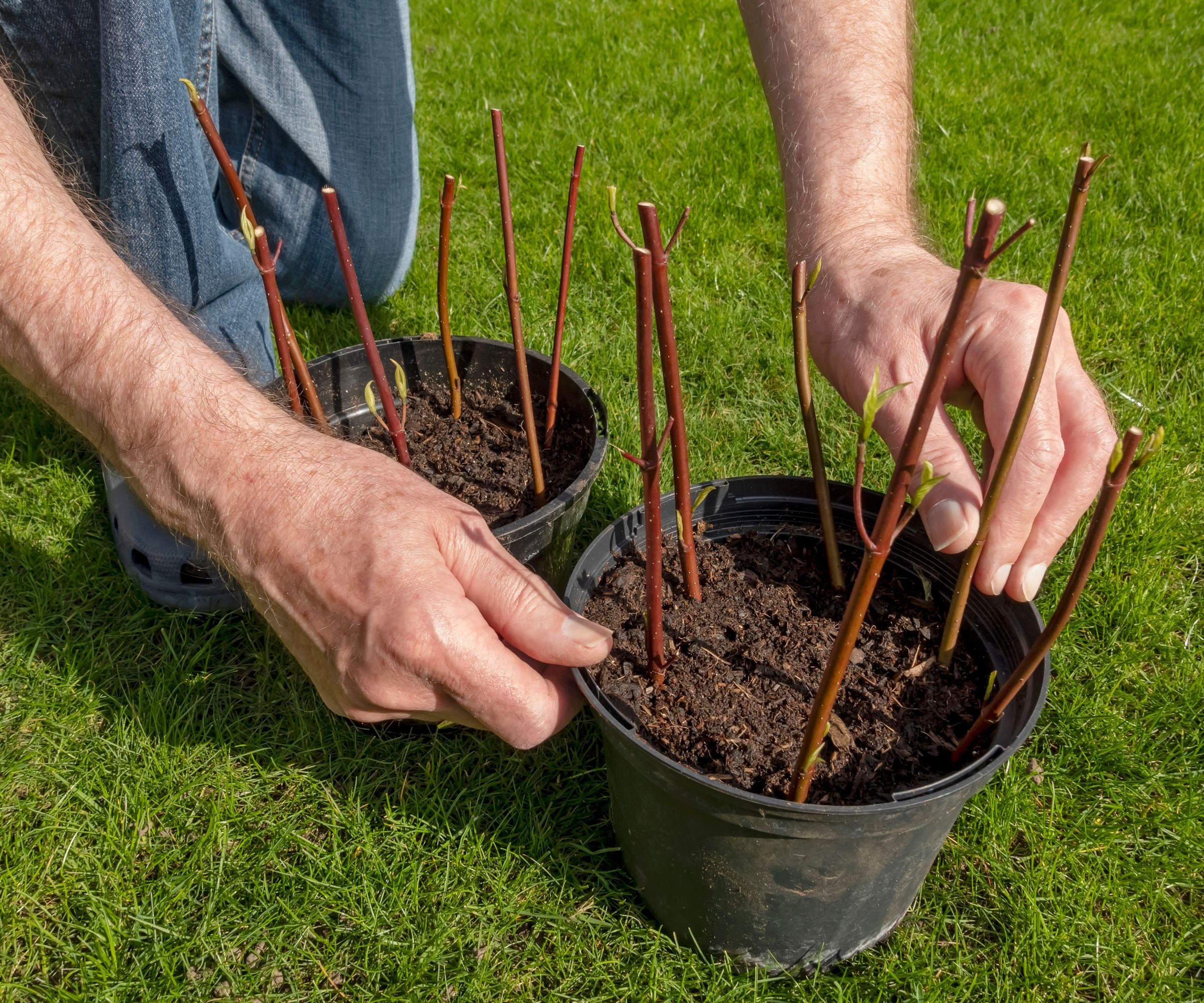
Hardwood cuttings are great for many woody plants, including cornus
If you want to take plant cuttings of these evergreen shrubs then there are two options available, either from softwood cuttings in the summer or hardwood cuttings in fall or winter. Cuttings are the most successful way to propagate new holly plants.
Any time you take plant cuttings, use sharp and clean garden tools. It would be a mistake to take plant cuttings with dirty or blunt pruning shears as you would massively affect the chances of your cuttings rooting successfully.
Janet Loughrey of Garden Design outlines six simple steps for taking softwood cuttings of holly plants in summer or early fall.
- Make cuttings 4 to 6 inches long from the branch tips
- Cut branches just below a bud and remove the bottom leaves
- Dip the cut end in rooting hormone and place in 4-6 inch pots filled with seed starting mix up to the first set of leaves
- Water and place in bright indirect light.
- Keep soil evenly moist but not soggy
- Cuttings may take 2 to 3 months to sprout. Plant in the garden when cuttings have developed sufficient roots and the outdoor soil is warm enough
Taking hardwood cuttings is a very simple way to take cuttings from mid-fall through winter. It takes longer to get a new plant than with softwood cuttings, but remains a very reliable way to get new holly bushes.
Choose straight stems that are pencil-thick and 12-14 inches long and remove the leaves so you are left with bare stems. Cut just below a bud and dip the bottom of the cuttings in rooting hormone powder, available at Amazon and other retailers, before putting the cuttings into deep pots filled with well-draining compost - with two-thirds of the cutting below the soil. You can put many cuttings into one pot.
The alternative is to insert the cuttings directly into the ground outside in a narrow trench. Hardwood cuttings should be left for around a year - they will need to be regularly watered - and then planted into their final spots the following fall.

Janet Loughrey has been a full-time garden photographer and writer for 25 years. She lives and gardens in Portland, Oregon.
How to plant a holly bush
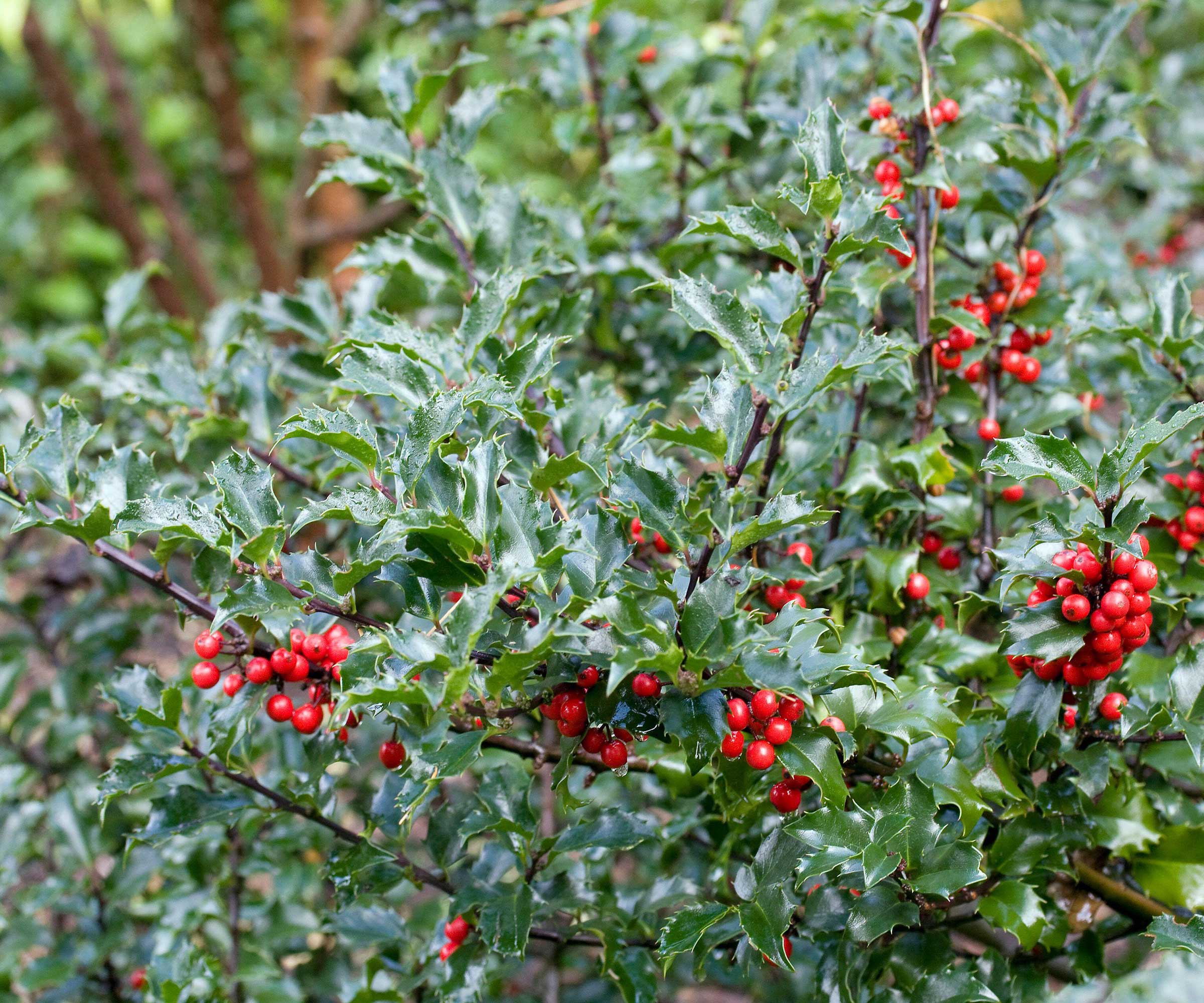
Holly bushes grow and develop slowly over time
Holly bushes can be planted at any time of the year, but the ideal window to add them to your garden is from fall to spring. They want to grow in a soil type that is rich, moist and well-draining, ideally in a spot that offers them full sun to partial shade. The more sun a holly bush gets, the faster it will grow and the more berries it will produce.
‘Enriching the soil with organic matter such as compost or well-rotted manure is essential,’ says Sean Lade, a gardening expert and director of Easy Garden Irrigation. ‘Enhancement of the soil with organic matter, coupled with thorough watering to prevent drying out, sets the stage for optimal growth.’
To plant a holly bush, dig a large hole to accommodate the roots - around twice the width of the rootball. Place the plant into the hole and backfill with soil, making sure the holly is planted at the same depth it was in the pot.
Water well after planting and, in addition, Sean recommends applying a granular general feed around the base and covering the soil with a ‘generous layer of mulch or bark chippings’.
If you are planting hollies as a hedging plant to create a boundary that both gives privacy and looks beautiful, then space each plant around 24 inches apart.

Sean Lade is the Managing Director of Easy Garden Irrigation, an industry-leading BALI-accredited company. Sean holds in-depth expertise in gardening and horticulture, with a focus on designing efficient irrigation systems. His solutions grace gardens and nurseries across the UK, embodying an environmentally-conscious approach to water usage.
How to care for a holly plant
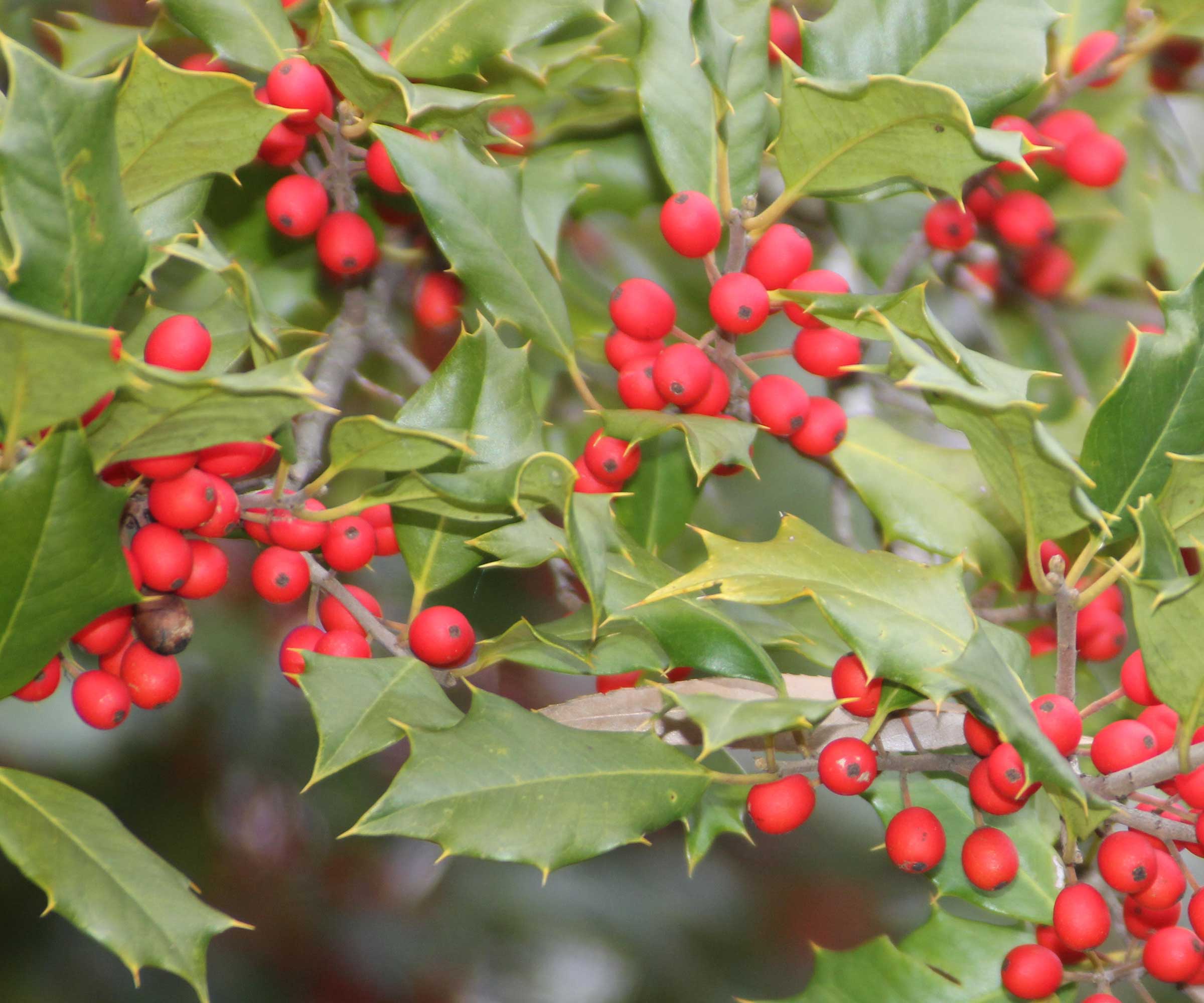
A variety of holly bushes are available to purchase as pot-grown plants
Hollies are simple to care for once they are established. They do not need lots of watering, though you will need to water plants during extended dry periods.
Hollies need at least an inch of water a week and Lindsey Chastain, founder at The Waddle and Cluck, advises that hollies should be fed in spring with a fertilizer that is ‘formulated for shrubs and trees’. They also benefit from a 2-4 inch layer of mulch annually to help the soil retain moisture. An example of a balanced feed to use is the Expert Gardener All Purpose Plant Fertilizer, available at Walmart.
Pruning should also be done annually to remove dead, damaged, or diseased branches and lightly shape the plant. Holly can either be left to develop a natural shape or size, or clipped into a more formal look.
‘Prune hollies in early spring before new growth emerges,’ says Lindsey. ‘This avoids accidentally cutting off next year's flower buds or removing future holly berries. You can prune holly quite hard - even cut established shrubs back to within a foot or two of the ground, and they will bush out again nicely. ‘
Take care when pruning hollies not to prune at the wrong time of year or cut off too much of the thickest, oldest branches - this would be a pruning mistake as the resulting regrowth may be poor. If you do cut back holly hard, then you are going to lose berries for that growing season.

Lindsey started gardening in 2005, when her first son was born, as a way to save money. It started with a small window herb garden, then expanded to potted vegetables, and now, she and her husband can regularly be spotted in the garden on their homestead.
FAQs
How quickly do holly trees grow?
Holly is a slow-growing evergreen tree for the garden. It grows only around 4-7 inches per year and can take up to 25-30 years to reach its full size. A fully mature holly tree can reach 50 feet in height.
Can holly bushes grow in pots?
Holly is ideally suited for container gardening ideas due to its slow-growing nature. Even though all holly grow slowly, dwarf varieties of holly often represent the best types for permanently growing in pots. Other types may require more pruning to restrict their growth. When growing holly in pots, they will require more watering than plants in the ground.
What is the fastest growing holly for privacy?
If you are adding holly as a winter plant for privacy to create a fast growing hedge, it is thought that Nellie Stevens Holly (Ilex aquifolium Nellie Stevens) is the fastest growing type of holly. It is capable of growing 2-3 feet per year, compared to the inches that many other types grow annually. Nellie Stevens Holly is available at Fast Growing Trees.
Holly is a very popular frost hardy plant that comes to the fore in winter, with its red berries one of the classic sights of Christmas.
There are lots of other plants that can bring color and beauty to a backyard winter garden even in the coldest winter months, such as winterberry, witch hazel, and dogwood.

Drew has worked as a writer since 2008 and was also a professional gardener for many years. As a trained horticulturist, he worked in prestigious historic gardens, including Hanbury Hall and the world-famous Hidcote Manor Garden. He also spent time as a specialist kitchen gardener at Soho Farmhouse and Netherby Hall, where he grew vegetables, fruit, herbs, and cut flowers for restaurants. Drew has written for numerous print and online publications and is an allotment holder and garden blogger. He is shortlisted for the Digital Gardening Writer of the Year at the 2025 Garden Media Guild Awards.